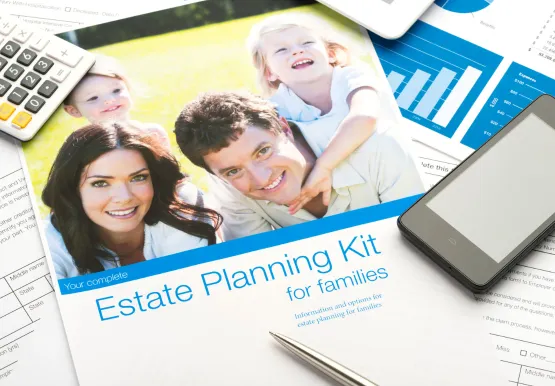Protect What Matters
Trusts
We specialize in creating tailored trust solutions, including revocable living trusts, irrevocable trusts, special needs trusts, and more, to meet the unique needs of each client. We work closely with you to understand your objectives, offering personalized advice on selecting the right type of trust to achieve your goals, whether it's asset protection, avoiding probate, or ensuring the care of a loved one. Our process is designed to be straightforward and stress-free, providing you with the assurance that your estate is in good hands. With our trust services, you gain peace of mind knowing your wealth is preserved, protected, and passed on according to your precise intentions.
Trust-Based Estate Planning
If you create a Trust-based Estate Plan (as opposed to a Will-based plan) you will likely avoid thousands of dollars in Probate expenses, prevent multi-jurisdiction real-estate Probate problems, mitigate government interference, keep your information private, prevent delays in asset distribution, take advantage of beneficiary asset protection, and reduce family conflict.
A Trust-based Estate Plan helps you
Manage investment accounts
Implement business succession plans
Inventory assets and debts
Value assets
Pay estate debts
File fiduciary and estate tax returns
Retitle and distribute assets
Advanced Legal Planning can help you create a customized Trust-based Estate Plan that supports your goals.

The Most Common Type of Trust is a Revocable Living Trust Things You Should Know About a Revocable Living Trust

Probate Avoidance
Property that is passed through a Will must be directed by Court order through Kansas's Probate process: proves the validity of the Will, appoints a Personal Representative, and implements the Will’s directives. Probate can be protracted and expensive.
Probate requires mandatory notification to all beneficiaries of the Will and to those who would inherit if there were no Will. This process allows those not named in a Will the opportunity to challenge the validity of the Will.
If you own real estate in more than one state, your estate must probate property in each state where property is owned. However, you can avoid multiple state probates if all your properties are placed into a Trust.
A Trust does not require court intervention. Your Trust administered entirely by the Trustee you name. Your Trust is your detailed set of instructions regarding how your estate is to be governed.
A Trust keeps your estate affairs private because it is not probated. When a Will is probated, all information filed with the Court is public record including the inventory of all assets and their values.
A Trust allows for efficient distribution of your assets. According to the American Bar Association, the average Probate takes 9 months. However, if difficulties arise, some Probates last years.
A Trust designed by Advanced Legal Planning avoids the mandatory probate notification process and can reduce unnecessary conflict.
Remarriage Protections
If you die before your spouse, there is the possibility that the surviving spouse will remarry. Most Estate Plans provide for a surviving spouse and then for children. However, most Estate Plans do not prevent the surviving spouse from changing the plan to favor the new spouse and new children.
Every estate planning attorney has stories of a surviving spouse remarrying disinheriting the original heirs. A properly designed Trust-based Estate Plan can include safeguards to ensure the original plan is honored.


Asset Protection
Many Estate Plans leave inheritances exposed. If a beneficiary gets sued or gets divorced, the inheritance you intended for a child may instead go to a creditor or an ex-spouse. Advanced Legal Planning drafts plans that protect each of your beneficiaries from creditors, predators, and divorce.
A Trust-based plan has the capability to protect assets for whomever you name as a beneficary. This is accomplished by building sub-trusts into your estate planning Trust.
Each Trust can be structured to leave assets to beneficiaries in a protected sub-trust with as many or as few restrictions as you deem appropriate.
Tax Advantages
Trust-based estate planning provides the most flexible options to reduce or eliminate estate tax. Advanced Legal Planning will counsel with you to choose the appropriate provisions for your circumstances.


Trustmaker Disability
If you are turning 65 today, you have nearly a 70% chance of needing some type of Long Term Care services and supports in your remaining years. (U.S. Department of Health and Human Services). If you are no longer able to manage your own finances, it is essential to have disability provisions drafted into your Trust.
Provide for aging parents.
Instruct your Trustee how to care for you and your family.
Instruct your Trustee how to manage your assets.
Plan for proper management of your business.
Avoid the need for Court imposed conservatorship.
Beneficiary’s Disability
Your beneficiaries may experience disabling injury or illness after you have created your Estate Plan. You can build a disability sub-trust into each Trust-based estate plan. Advanced Legal Planning can also design stand-alone “Special Needs” Trusts when appropriate. Special Needs Planning The medical and financial needs of a disabled beneficiary often necessitate use of government programs for assistance. Use of disability planning in your Trust will allow your disabled beneficiary to:
Qualify for Medicaid and other assistance quickly
Preserve the beneficiary’s inheritance
Supplement the needs of your beneficiary without loss of government benefits
Avoid the need for Court imposed conservatorship


Incompetent Beneficiaries
When you leave assets to a mature beneficiary, he or she may predecease you and those assets pass to a child too young to manage them. You should determine the age that is appropriate for a beneficiary to manage their inherited assets.
Young Beneficiaries
When you leave assets to a mature beneficiary, he or she may predecease you and those assets pass to a child too young to manage them. You should determine the age that is appropriate for a beneficiary to manage their inherited assets.

Other Types of Trusts
Irrevocable Life Insurance Trusts
To hold large life insurance policies for estate tax purposes.
Irrevocable Trusts for Asset Protection
These are generally used to protect assets for the next generation. Elder Law / Medicaid Planning
Domestic Asset Protections Trusts
Make use of laws of certain states such as Nevada, Wyoming, and South Dakota to achieve asset protection while retaining rights to principal.
Foreign Asset Protection Trusts
Make use of laws of foreign jurisdictions such as the Cook Islands, Nevis, and Belize to achieve asset protection while retaining rights to principal.
Generation Transfer Trusts
Trusts to maintain and grow family assets for multiple generations.
Special Needs Trusts (Sometimes called “Supplemental Needs” trusts)
These are designed to assist those receiving government aid without disqualifying them from the aid they depend upon. Special Needs Trust Planning
Case #1
Bob just finished probating his mother’s will. Everything went smoothly, but it still took nine months to complete and cost him thousands of dollars. Bob wants to do better for his children.
Bob went to Advanced Legal Planning. Bob now has a trust-based estate plan. As soon as he dies, his trustee will be able to wrap up his affairs, pay his expenses, and then leave the rest in asset-protected trusts for his children. His trust has good instructions, so his trustee knows exactly what to do. His trustee will be able to act immediately, without having to pay a probate attorney and wait for court approvals.
Case #2
Bob’s son, Zack, and Bob’s daughter, Jennifer, are the beneficiaries of separate share trusts created for them by Bob’s trust when he died. Zack and Jennifer are each other’s co-trustees.
Zack has done exactly what his father told him to do. He has left the assets in his trust alone except for emergencies. Now he sees why that was important.
Zack got sued over a business deal gone bad. By the end of the trial, Zack’s attorney’s fees were in excess of $30,000. Zack has been able to pay all of his attorney fees from the trust. However, when the assets of the trust were discussed to satisfy the judgment, Zack’s sister (co-trustee) would not release any trust assets to pay the judgment. Zack is grateful to Bob for setting up a trust to protect the home and the other assets left for Zack and his children.
Safeguard your family's future through a tailored Estate Plan Schedule a free consultation with one of our experienced Estate Planning Attorneys
We provide education and counseling to individuals and families so that you can make informed choices with confidence.

FAQS
What is estate planning, and why is it important?
Estate planning is the process of structuring your assets to ensure they are distributed according to your wishes after your passing or incapacitation. Estate Planning helps you minimize taxes, avoid legal disputes, provide for your loved ones, and maintain control over your financial affairs. Proper Estate Planning can also protect your beneficiaries from creditors and other potential risks.
What documents are typically included in an estate plan?
Key estate planning documents include a will, trusts, a financial power of attorney, a healthcare power of attorney, living will, beneficiary designations, and guardianship designations. Each document serves a specific purpose and can be customized to suit your unique circumstances and goals.
How often should I review and update my estate plan?
It is generally recommended to review and update your estate plan every 3 to 5 years or after significant life events such as marriage, divorce, birth of a child, death of a beneficiary, or substantial changes in your assets or financial situation. Regular reviews ensure that your estate plan remains current and accurately reflects your wishes.
One way to make sure your plan is up to date is to join a maintenance program. A maintenance program assures your plan is being reviewed regularly and gives easy access to an attorney if you have any questions or need any changes.
What happens if I die without a will or estate plan in place?
If you pass away without a will or estate plan, your assets will be distributed according to your state’s “intestacy ” laws, which may not align with your preferences. This can lead to family disputes, increased legal expenses, and increased hardship for your loved ones. It is crucial to have a well-crafted estate plan in place to ensure your wishes are honored.
Can I create my own estate plan, or should I consult with an attorney?
While it is possible to create your own estate plan, working with an experienced estate planning attorney is highly recommended. An attorney can help you navigate complex legal requirements, identify potential issues, and create a customized plan that addresses your unique circumstances and goals. This ensures that your estate plan is effective and legally sound. This provides peace of mind for you and your loved ones.
What is the difference between a revocable trust and an irrevocable trust?
A revocable trust is a flexible legal arrangement that allows you to maintain control over your assets during your lifetime and make changes to the trust as needed. Upon your death, the trust becomes irrevocable, and assets are distributed to your beneficiaries.
An irrevocable trust, on the other hand, is a permanent arrangement that cannot be altered or revoked once established. Irrevocable trusts offer greater asset protection and tax benefits but require you to relinquish control over the assets placed in the trust. An experienced Estate Planning attorney can create “some” flexibility to an irrevocable trust while maintaining its benefits.
How can elder law and Medicaid planning help me and my family?
Elder Law and Medicaid Planning involve navigating the complexities of aging, long-term care, and government assistance programs. By working with an experienced attorney, you can develop a strategy to secure quality care, preserve your assets, and expedite your eligibility for Medicaid benefits. This process can help alleviate financial burdens and provide peace of mind for you and your family.
What is special needs planning, and why is it important?
Special needs planning is the process of creating a comprehensive plan to support a loved one with special needs, ensuring their long-term well-being and financial security. This can involve establishing a special needs trust, selecting appropriate guardians, and identifying government benefits and resources. Proper planning can help your loved one maintain their independence, quality of life, and access to essential support services.
What is the role of a trust administrator, and what are their responsibilities?
A trust administrator, also known as a Trustee, is responsible for managing and distributing trust assets in accordance with the terms of the trust agreement. Their duties may include investing assets, paying taxes, maintaining records, communicating with beneficiaries, and addressing any legal or financial issues that arise. Trust administration requires a thorough understanding of fiduciary responsibilities and trust laws to ensure compliance and protect the interests of the beneficiaries.
Do you serve Derby and Wichita, KS?
Yes, we proudly serve both Derby and Wichita, Kansas through our by-appointment offices. Whether you're nearby or across the state, we can meet in person or virtually to ensure your planning needs are met with care and convenience.
What does estate planning cost in Kansas?
The cost of estate planning in Kansas varies based on the complexity of your needs. Simple wills and powers of attorney may start at a few hundred dollars, while comprehensive estate plans — including trusts, Medicaid planning, and special needs provisions — are higher. We offer transparent pricing and will walk you through options during your consultation.
How long does Medicaid planning take?
That depends on whether you're pre-planning or already in crisis. Pre-planning can take 2–4 weeks to prepare documentation and strategy. In crisis situations (like nursing home entry), we act immediately — but the full Medicaid process, including approvals, can take several months. Starting early is always best.
Do I need an attorney for estate planning?
While DIY estate planning tools exist, they often miss important legal and personal details. Working with an attorney ensures your documents are valid, state-compliant, and truly reflect your wishes — especially for blended families, special needs dependents, or asset protection goals.
Get In Touch
Call (316) 252-2233 for Professional Medicaid & Estate Planning
Derby Office
111 N. Baltimore Ave Derby, KS 67037
Mon – Fri 9am to 5pm
Sat & Sun – Closed
Wichita Office
10300 W Central Ave Wichita, KS 67212
Mon – Fri 9am to 5pm
Sat & Sun – Closed


Youtube